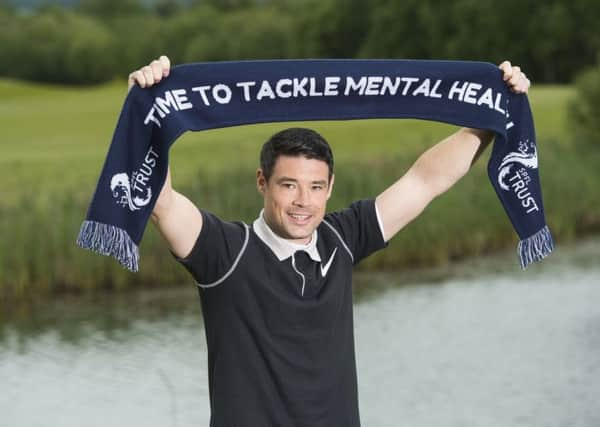Darren O’Dea reveals the influence Tommy Burns had on his career


Now a former Dundee defender, having stepped away from full-time football at the end of the season, he is not merely ready to embrace his move into coaching youths at Motherwell. The 32-year-old appears to have ached to make the switch for so long because he burns with a desire to provide the guidance that changed his life as a youngster at Celtic.
O’Dea was homesick after moving to Glasgow from Ireland as a 15-year-old before the late Tommy Burns convinced him that he had it within him to make the grade. He is in no doubt that this allowed him to go and have a career his “abilities did not warrant”.
Advertisement
Hide AdAdvertisement
Hide AdO’Dea will continue to play part-time next season with East Kilbride, the Lowland League side based close to his home. “Joining East Kilbride was part of the plan,” he said. “Motherwell is the priority for me and it’s going to take up every minute of my day now. But although I’m Irish, East Kilbride is where I’ve grown up, having spent much of the past 17 years there. I know the club and the owners and they put the idea to me. It wasn’t something I was mad keen on, to keep on playing. But I’m happy to go and help East Kilbride out.”
Coaching is O’Dea’s passion now and he is adamant it need not be a poor substitute for playing at the highest level.
“I would have retired a while ago [but] I took advice from dozens of people and not one of them told me to retire. They all said I should play as long as I could. So the only difficulty I had with my decision was that I wasn’t thinking how others were – because I genuinely knew I wanted to retire. And not for any other reason than I wanted to coach.
“It probably hit me a couple of years ago when I was coaching Dundee’s under-18s and I was getting a far bigger buzz going to their session than I was going on my own to train.”
Giving advice to young footballers at a crucial stage in their lives is a responsibility that O’Dea feels drawn towards in the hope he can set a 15-year-old on the right path and change their lives as Burns did for him.
“I know people who remember Tommy as a player or a manager, but I only knew him as a guy, just a good guy,” he said. “He was a fantastic coach and he taught me a lot of things technically. But that’s not what I’m talking about with him. He was someone that guided me. I made a lot of mistakes when I was younger, as any young boy does. But Tommy guided me in life.
“When I was six months in at Celtic I wanted to go home. I wanted to go back to Ireland but Tommy was out to my digs within the hour to talk to me and have dinner. But when I look back I think about how he must have had 40 other boys to look after. He had a wife and kids, who I know really well, and he had a life. But yet he always seemed to have all the time in the world.
“He was actually a terrible time-keeper, probably because of that. But he was a guy I owe the world to and I have stayed in contact with his family.
Advertisement
Hide AdAdvertisement
Hide Ad“Tommy made me think I was a world-beater, and I wasn’t. I wasn’t. Trust me. He made me write all my ambitions and hopes for my personal life and my career. I found it the other day. If you see what I wrote you would understand how Tommy made you feel a better player than you were. My ambitions were ridiculous. I’d need to show you. Put it this way, I was winning the World Cup with Ireland. He made you just feel brilliant and that is a massive trait.
“Tommy was a huge part and I had Jim McInally, who was my 16s/17s coach, Willie McStay, Danny McGrain and Kenny McDowall. I look how important they all were in my career. They were a coaching staff who basically molded me into a player. I look at the kid who came over from Ireland, and I wasn’t that talented. I didn’t actually have the work ethic when I came over. They transformed me, and built me, and slapped me when I needed it as well.”I feel that with the knowledge I have I can help them make that transition.”
l Darren O’Dea was speaking at the SPFL Trust Golf Day, which raises money for mental health first aid training.